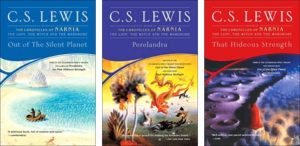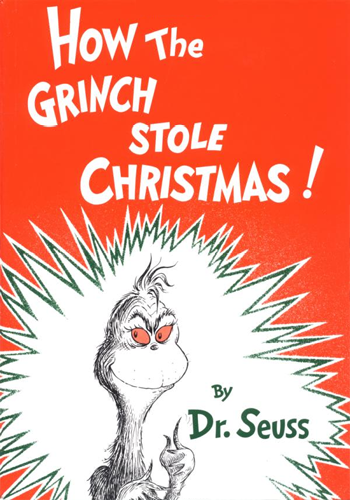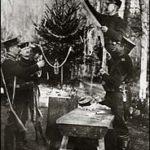If you havenât seen the still-new teaser for The Hobbit (part 1) yet, then congratulations! â to me, for I have one more Christmas present: being able to show it to you, right here.
You can also download the highest-quality versions from Apple, or read an exhaustive frame-by-frame analysis from TheOneRing.net.
My personal preference, having already done all those tasks, is to play the deep, somber Dwarven song (adapted from Tolkienâs own lyrics in The Hobbit book) repeatedly in my mind, and add to my anticipation of Dec. 14, 2012 â the filmâs release date, in the U.S.
 The Hobbit: An Unexpected Journey is the first of a two-part film, much like Harry Potter and the Deathly Hallows did so successfully. Its second part releases December 2013.
The Hobbit: An Unexpected Journey is the first of a two-part film, much like Harry Potter and the Deathly Hallows did so successfully. Its second part releases December 2013.
Both films will be in 3D, not converted in post-production, but filmed that way, in super-bright colors, so that Middle-Earth may appear even more incredible than it did in the first Lord of the Rings films. In my view, I think that will head off director Peter Jacksonâs yearning (which makes sense) to top the first three films. I meant that instead of turning The Hobbit, which should be more âfunâ than The Lord of the Rings, into a darker story, he may redirect that impulse into making the film better in technical quality, and in 3D.
Yet thereâs yet another dimension to The Hobbit finally being made into a blockbuster live-action film, with all the same producers and actors (plus some new ones). By that I mean that Christians, and especially those who have promoted The Lord of the Rings in somewhat partial-truth ways, could be confused about how to react to The Hobbit.
Iâll have that question for readers, at the end of this year-end hodgepodge-topic column.
Tolkien in the Library
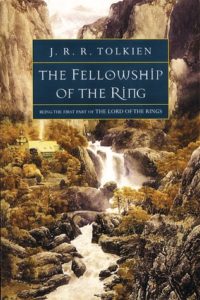
The SF Library’s 300th added title
Because of our odd order of adding previously released books to the Speculative Faith Library, some time passed before weâve finally began placing Tolkienâs classics on our cyber-shelves. Just this week, I added what happened to be our 300th title, The Lord of the Rings: The Fellowship of the Ring itself. Before that, The Hobbit was also added.
The Library keeps growing, with classic Christian fantasy and contemporary novels being added all the time. In coming months, we will couple those with even more info about each book â interaction, links, and reviews that keep in mind readers of all ages.
The wizardsâ Christmas quest
After Fred Warrenâs overview on Tuesday of the (three?) wise menâs journey to see the newborn Jesus, I had to share this similar brilliance from David (not Johnny!) Mathis:
These Dudes Arenât Kings
Now âWe Three Kingsâ is a wonderful Christmas song. Perhaps the Beach Boysâ version is best, if that’s not too sacrilegious to say. Iâm not eager to play the spoiler here, but these dudes arenât kings. They are pagan astrologers, not too far from what weâd call sorcerers and wizards.
Gandalf and Dumbledore are coming to worship the baby Jesus.
 These magi are not respected kings but pagan specialists in the supernatural, experts in astrology, magic, and divination, blatant violators of Old Testament law â and they are coming to worship Jesus.
These magi are not respected kings but pagan specialists in the supernatural, experts in astrology, magic, and divination, blatant violators of Old Testament law â and they are coming to worship Jesus.
We really should beware of having a narrower vision of who can come to Jesus than God does. We can be so prone to write off people like this, but God doesn’t. He draws. He woos. Heâs seeking worshipers from among the priestly caste of pagan religion. There will be worshipers from Hogwarts, even from Slytherin.
From We Three Kings of Orient Arenât, David Mathis, DesiringGod.org, Dec. 24, 2011 (boldface emphases added)
Now it would be one thing if someone from Speculative Faith, or a Christian fantasy author, had written this. Yet this comes from one of those nonfiction-prone Christian-Leader types. They are doing just what we may hope: using even âsecularâ stories, with discernment, to back up (not prove!) the Bibleâs greatest Story, whose Hero is Christ.
Mathis added, in a shorter piece the following day:
This is astounding â that God is welcoming the magi, and not on the provision that they first abandon their life of astrology and magic. No, he comes to them where they are, in their sin. He goes as far as to exploit the very channel of their deepest idolatry to draw them to Jesus.
From That Crazy Star of Bethlehem, David Mathis, DesiringGod.org, Dec. 25, 2011
In the new year, may we all grow in Biblically balanced discernment â not accepting stories with false beliefs or enjoying them only because of baseless âfreedom,â but for the truths they do include and the glories God dares to reflect even in a fallen world.
Thatâs especially true, given the sobering risks of falling to one extreme or the other âŚ
Dark books, the Devil, and Driscoll
Once again, a popular and solid Christian leader shows â even if not a severe lack of grasping true speculative-story discernment â an ironic contradiction of his own ethic.
Todayâs installment in this recurring meme comes courtesy of Seattle pastor Mark Driscoll. Overall, I like this guy. He preaches the Gospel of repentance and faith, and talks tough (mostly for right reasons). For all of you folks who dislike legalism and fake religious systems, Driscoll comes across as delightfully contrarian. He doesnât wear a suit and tie, does the contemporary-worship-but-with-substance thing, and writes books about doctrine in popular language (or his best attempts at replicating it).
So how come Driscoll issues such cultural-fundie-sounding critiques of popular books?
The latest such critique is from Driscollâs Facebook page, along with a photo showing a row of admittedly uniform-looking book covers, over which a sign declares that this is a bookstoreâs Teen Paranormal Romance section. âTook Ashley book buying @ Barnes & Noble,â Driscoll explains. âWe both nearly died seeing this section.â
Though he doesnât say so here, Driscoll has previously claimed that books like Twilight are obviously âdemonicâ and should therefore Christians should avoid them.
Iâm no Twilight fan. (Here are partial reasons why Iâm not.) But neither do I agree with claiming things are âdemonicâ based only on appearances. Previously Iâve said Driscollâs âdiscernmentâ here both fails to consider all Biblical principles and is self-contradictory. Hereâs a guy who dresses in nontraditional dress styles, based on freedom in Christ and things like that, and (rightly, perhaps) believes that kind of presentation doesnât matter. And then he goes off and judges books, quite literally, based only on their covers.
In this case, Driscollâs Facebook photo post generated the expected level of controversy â actually, responses that (so far) never interacted with one another.
Also predictably, most of the responses took opposite and extreme sides:
- âI’m scared for my future childrenâ vs. âA judgemental spirit is no solutionâ
- And (this was a single short response) âdemonic attackâ vs. (un-bracketed ellipses in original) âit is fiction…and there is nothing satanic about it…lighten up people..if it gets kids reading..I say good…. [âŚ] Kids KNOW it is fiction…â
These kinds of (in my view) equal-opposite and imbalanced responses are part of why Speculative Faith exists. We need to think Biblically about secular fiction, neither calling it âdemonicâ based only on appearance, nor assuming fiction has no effect on readers.
Also, Iâm not sure how one guy saying â[Cuss redacted] you Twilight…â helps anything.

Christmas Un-Specials
Last Christmas, I gave you â no, not my heart, but a list of 50 âun-giftsâ that were likely lackluster because so many true-life holiday gift items are already ridiculously silly.
This year, to save me from tears, I came up with 50 âChristmas Un-Specialsâ: titles and quick summaries of holiday movies that, with only a few exceptions, have never been made and we hope will never be made. Examples:
1. âChristmas Crash.â After Christmas Eve wreck, family learns the greatest gift ever is a new car.
6. âHappy Holi-delays.â Working Dec. 25, TSA agents find peace, romance, and new gifts, on the job.
8. Â âTrans4mers: North Polarization.â Flat hero and hot elves fight Robots. Directed by Michael Bay.
21. âA Thomas Kinkade Christmas.â Sweet cottages full of light and hope may also hold dark secrets.
46. âCamping Christmas.â Radio evangelist stuns world by successfully predicting holiday on Dec 25.
The complete list is here.
Why should Christians hype âThe Hobbitâ?
âWe come to it at last.â Hereâs my final question for Speculative Faith readers, focusing on the upcoming The Hobbit film, part 1. Itâs this:
Why should Christians promote reading, or viewing, The Hobbit?
You may know exactly why: itâs by the very Christian Tolkien (as Becky re-confirmed on Monday); the stories are unparalleled in originality and craftsmanship; and the world of Middle-earth is just as ârealâ and amazing a myth, if not more so, as any other.
We may know this, though we struggle to articulate it sometimes. But do others?
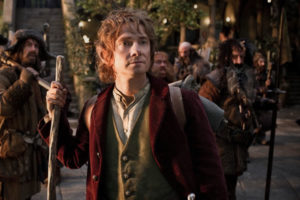
The heroic Hobbit, but not a Christ-figure. (If everyone’s a Christ-figure, no one is.)
For The Lord of the Rings, Christian movie reviews, articles, and books fell uniformly into a rather singular promotion: Tolkien was a Christian; there isnât much troublesome âmagicâ; and Gandalf, Frodo, Aragorn are like prophet, priest, and king, respectively, very much like Jesus. Similar techniques were used to âsellâ the Narnia films, especially the first. I worked at a Christian bookstore shortly thereafter, and well recall all the Finding God In ⌠books for either franchise, or even a stack of tracts with Aslan on front.
Will all that occur with The Hobbit? I highly doubt it!
Do Hobbit characters have even slight allegorical references? Not that I can think of â not without already knowing Middle-earthâs foundation or what they did at other times.
Does The Hobbit have some messianic undertones, a la even the Harry Potter series? No.
Thus, all the usual means of Christian promotion of secular stories seem to be missing. Those who try to justify it as an âallegory,â or even a Biblical-like battle between good and evil, will have to stretch their interpretations a lot for this mainly-for-fun fairy tale.
Yet The Hobbit is a joyous, timeless story, interlinked with The Lord of the Rings and the vast world of J.R.R. Tolkienâs making. It reflects his Christian worldview implicitly, with its themes of heroism, beauty, striving for new adventure beyond oneâs own comfort zones, and âeucatastropheâ â the sudden change of horrible evils into incredible good. This story need not be seen, or âsold,â to Christian audiences as any more than that.
Perhaps you agree. Or perhaps you see more specific âevangelicalâ elements that some Christian reviewers could pull out of (or push into!) The Hobbit and the film versions. If so, what would those evangelical-friendly elements be?
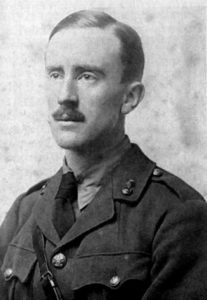 Apparently there are crossed wires, even in cyberspace. Consequently our scheduled guest for today is AWOL — hopefully without any attending tragedies or difficulties that might cause someone in person to miss an appointment.
Apparently there are crossed wires, even in cyberspace. Consequently our scheduled guest for today is AWOL — hopefully without any attending tragedies or difficulties that might cause someone in person to miss an appointment.
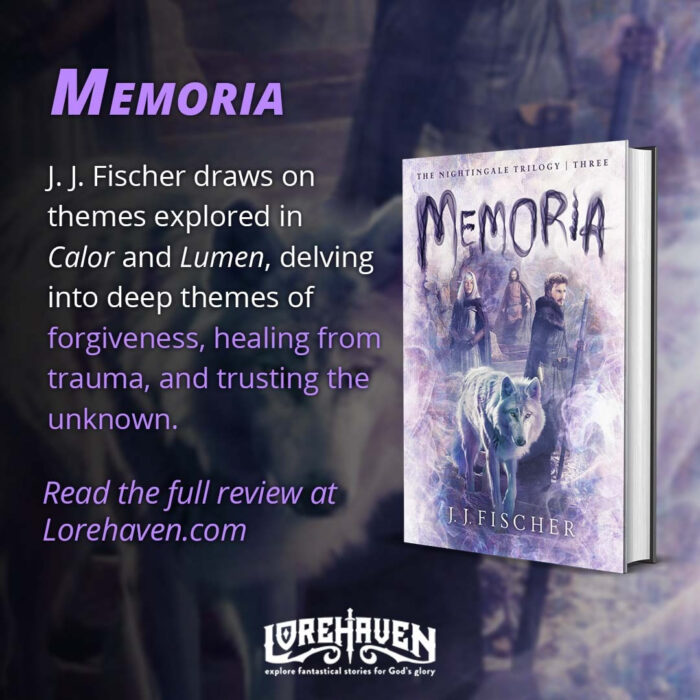
































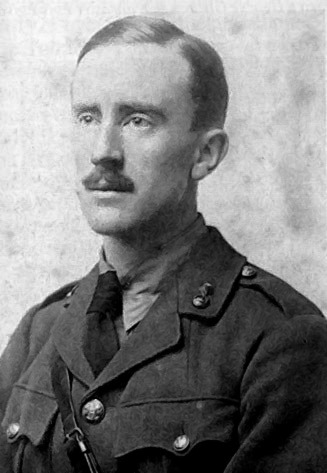
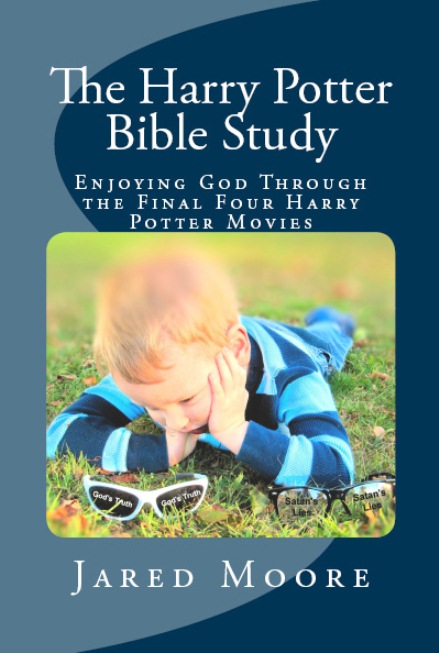

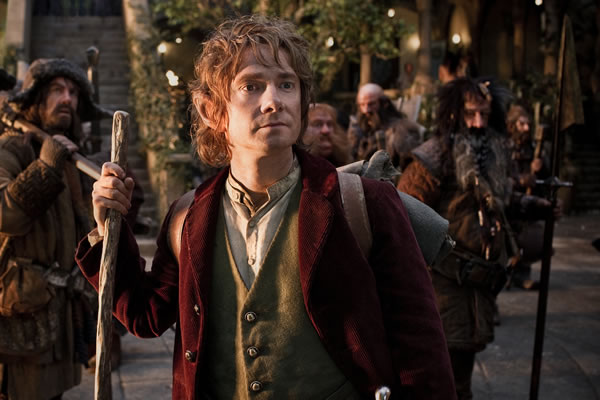


 These magi are not respected kings but pagan specialists in the supernatural, experts in astrology, magic, and divination, blatant violators of Old Testament law â and they are coming to worship Jesus.
These magi are not respected kings but pagan specialists in the supernatural, experts in astrology, magic, and divination, blatant violators of Old Testament law â and they are coming to worship Jesus.


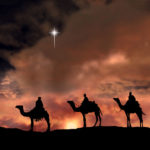
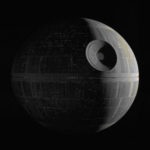



 âRudolph IV.â Aged reindeer with burned-out magic red nose learns being special isnât important.
âRudolph IV.â Aged reindeer with burned-out magic red nose learns being special isnât important. âBarbie Nutcracker.â Timeless seasonal ballet, now with more plastic and more radical feminism.
âBarbie Nutcracker.â Timeless seasonal ballet, now with more plastic and more radical feminism. âKarl the Radical Reindeer.â Disenfranchised sleigh-puller forms a union for North Pole rights.
âKarl the Radical Reindeer.â Disenfranchised sleigh-puller forms a union for North Pole rights.



 But this truth connected to the eucatastrophe has broader implications: “in the ‘eucatastrophe’ we see in a brief vision that the answer may be greater — it may be a far-off gleam or echo of evangelium [the gospel] in the real world.” Not an allegorical representation but more than a symbolic nod. Rather, this echo or gleam is more nearly a type characterizing reality, just as King David in the Old Testament was a type characterizing Christ, the soon and coming King.
But this truth connected to the eucatastrophe has broader implications: “in the ‘eucatastrophe’ we see in a brief vision that the answer may be greater — it may be a far-off gleam or echo of evangelium [the gospel] in the real world.” Not an allegorical representation but more than a symbolic nod. Rather, this echo or gleam is more nearly a type characterizing reality, just as King David in the Old Testament was a type characterizing Christ, the soon and coming King.



